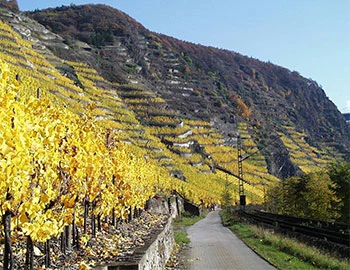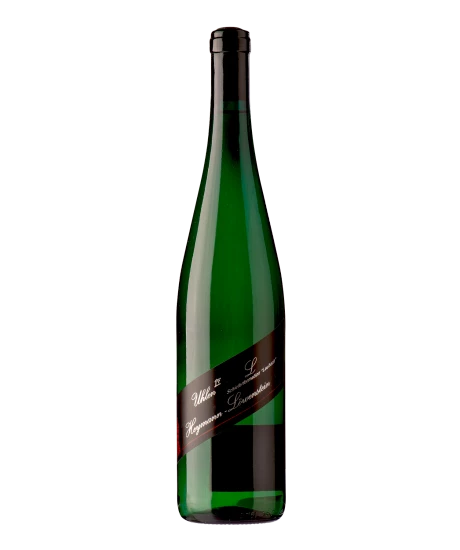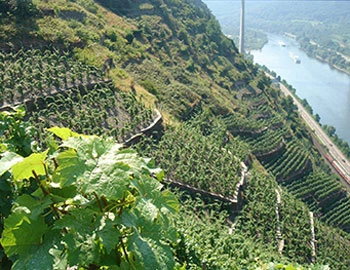Winninger Uhlen Laubach Riesling Grosses Gewächs 2020
QbA Mosel, Heymann-Löwenstein, 750 ml

| Grape variety: | Riesling |
| Producer: | Heymann-Löwenstein / Fam. Löwenstein |
| Origin: | Germany / Mosel / Untermosel |
| Other vintages: |
Attributes
| Origin: | Germany / Mosel / Untermosel |
| Grape variety: | Riesling |
| Label: | Vegan |
| Ripening potential: | 3 to 15 years |
| Drinking temperature: | 10 to 12 °C |
| Food Pairing: | Hot Asian dishes, Calamari alla romana, Salad with vegetables, pulses, pasta |
| Vinification: | long must fermentation, soft pressing, fermentation at low temperatures |
| Harvest: | hand-picking |
| Maturation: | in steel tank |
| Bottling: | filtration |
| Volume: | 12.5 % |
| Note: | Contains sulphites |
Untermosel
Lower Mosel: the finesse of steep slopes
The Lower Mosel comprises the final 100-kilometre section of the river between the village of Pünderich and the site near Koblenz, where the Mosel flows into the Rhine. This sub-region is often known as Terrace Mosel, where steep slope viticulture is reflected in its most impressive form. In the micro-terraces that often sit at dizzying heights over the river, Riesling demonstrates its complete expressive powers.
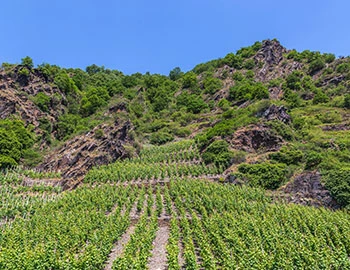
Mosel
Mosel: in Riesling territory
In the valleys of the Mosel, Saar and Ruwer, the white Riesling variety fully fulfils its potential. Mosel is not only the German growing area with the highest proportion of Riesling; the largest number of steep slopes are also found here. Around 40 percent of the vineyards are situated on gradients of greater than 30 percent, and must be cultivated with labour-intensive manual work. On the slate soils, Riesling presents its entire inimitable range, from dry to semidry to noble sweet..
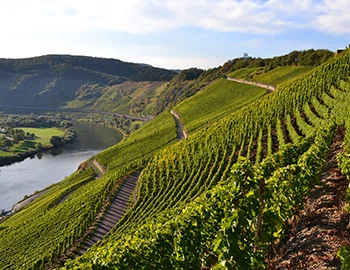
Germany
Germany – Into the elite the hard way
Sitting in the heart of Europe, the hilly, lake-dotted landscape of Germany provides ideal, fertile soil for the most diverse vine varieties. From Albalonga to Zweigelt, over 140 different grape varieties are grown on about 100,000 acres, cared for by nearly 50,000 vintners. Most of these vintners are young, modern, internationally trained, inquisitive and urbane. It is hardly surprising, then, that German wine has a good reputation well beyond the country's borders.
